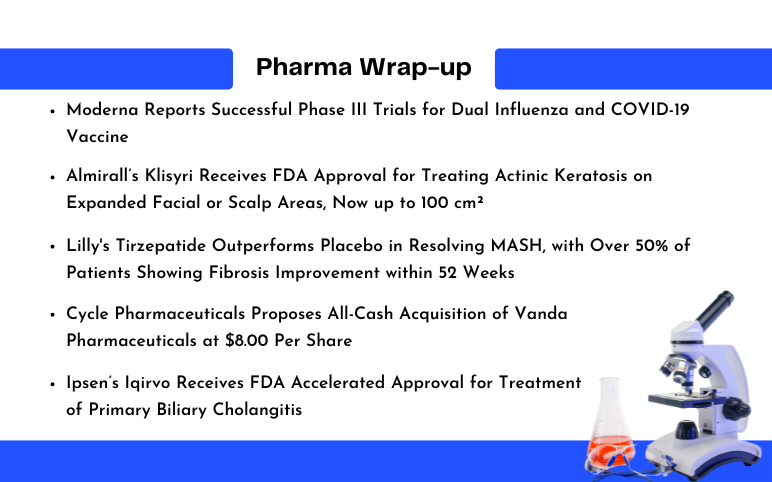Vaccine Adjuvants: Enhancing Immunity in the Fight Against Diseases
Jul 17, 2024
Table of Contents
Vaccines have been one of the most significant advancements in medical science, saving millions of lives by preventing infectious diseases. While the primary component of a vaccine is the antigen that stimulates an immune response, another crucial element often goes unnoticed: the adjuvant.
What are Vaccine Adjuvants?
Vaccine adjuvants are substances added to vaccines to enhance the body’s immune response to the provided antigen. By stimulating a stronger and more prolonged immune reaction, adjuvants help in producing a more robust immunity against infections. They work by activating various components of the immune system, such as dendritic cells and macrophages, which play crucial roles in initiating and regulating the immune response. This leads to a more effective recognition and attack on the pathogen, ensuring better protection for the vaccinated individual.
Downloads
Article in PDF
Recent Articles
- Realm of Pandemics: Were we prepared then? Are we prepared now? Will we be ever prepared?
- Helicobacter pylori Infections Treatment: Emerging Molecular Targets
- The Most Promising COVID-19 Vaccine Candidates In The Pipeline To Watch Out For
- Biosense Webster’s HELIOSTAR Radiofrequency Balloon Ablation Catheter; Philips’s ClarifEye Augmen...
- Social Determinants of Health and their Impact on COVID-19
Historically, adjuvants have played a vital role in vaccine development. The first widely used adjuvant was aluminum salts, or alum, which has been used in vaccines for over 70 years. Modern adjuvants, like MF59, AS03, and CpG 1018, have been developed to target specific pathways in the immune system, leading to improved efficacy of vaccines, particularly in cases where the antigen alone does not provoke a sufficient immune response. These advancements in adjuvant technology have been critical in developing vaccines for complex diseases like influenza, HPV, and COVID-19, contributing significantly to global public health.
Types of Vaccine Adjuvants
Vaccine adjuvants are crucial components that enhance the immune response to vaccines. They can be categorized into several types. Each type plays a specific role in boosting vaccine effectiveness by activating the immune system’s response to the antigen. Some of the major types of vaccine adjuvants used are
Oil-In-Water Emulsion
Oil-in-water emulsions are a type of vaccine adjuvant that consists of tiny oil droplets dispersed in water. These emulsions work by creating a depot effect, where the antigen is released slowly over time, enhancing the immune response. Examples include MF59, used in the flu vaccine, and AS03, used in some H1N1 influenza vaccines. The slow release of the antigen helps to stimulate a stronger and longer-lasting immune response by attracting immune cells to the site of injection and promoting the uptake of the antigen by these cells.
In the product category of the vaccine adjuvants market, the oil-in-water emulsion segment captured a significant portion of revenue in 2023, as per DelveInsight. This is due to the numerous benefits and uses associated with oil-in-water emulsions. These emulsions are known to enhance immunogenicity, effectively boosting the immune response to vaccines. They can activate both innate and adaptive immune responses, thereby improving protection against infectious diseases. The rising prevalence of communicable diseases is a key factor driving the adoption of oil-in-water emulsion adjuvants in vaccines, leading to the growth of this segment.
Moreover, oil-in-water emulsions enable the reduction of antigen doses while maintaining or even enhancing immune response levels. This dose-sparing effect is particularly advantageous for increasing vaccine availability, especially during shortages or in resource-constrained settings. As a result, the diverse benefits and applications associated with oil-in-water emulsions are expected to fuel the expansion of this segment, contributing to overall growth in the vaccine adjuvants market throughout the forecast period.
Aluminum Salts
Aluminum salts, such as aluminum hydroxide, aluminum phosphate, and alum, are among the oldest and most widely used adjuvants. They work by forming a complex with the antigen, which helps to prolong its presence in the body and enhance its uptake by immune cells. Aluminum salts also stimulate the immune system by inducing the release of pro-inflammatory cytokines. They are commonly used in vaccines for diseases like hepatitis A, hepatitis B, and diphtheria-tetanus-pertussis (DTP). Their long history of use has demonstrated their effectiveness and safety in a wide range of vaccines.
Liposomes
Liposomes are spherical vesicles composed of lipid bilayers that can encapsulate antigens. They are used as vaccine adjuvants to enhance the delivery of antigens to immune cells and to protect the antigens from degradation. Liposomes can be engineered to carry both hydrophilic and hydrophobic antigens, making them versatile adjuvants. They can also be modified to target specific cells or tissues, enhancing the specificity and efficiency of the immune response. Liposomes are used in various experimental vaccines and have shown promise in improving the immune response to both infectious diseases and cancer.
Saponin-Based Adjuvants
Saponin-based adjuvants, derived from the bark of the Quillaja saponaria tree, are known for their ability to stimulate strong immune responses. One of the most well-known saponin-based adjuvants is QS-21, which is used in several experimental vaccines. Saponins work by forming complexes with cholesterol in cell membranes, creating pores that facilitate the entry of antigens into immune cells. They also enhance the activation and maturation of dendritic cells, which are crucial for initiating the immune response. Saponin-based adjuvants are being studied for their potential use in vaccines against a range of diseases, including cancer and infectious diseases.
Toll-like Receptor (TLR) Agonists
Toll-like receptor (TLR) agonists are a class of adjuvants that mimic pathogen-associated molecular patterns (PAMPs) to activate the innate immune system. TLR agonists, such as CpG oligonucleotides (TLR9 agonist) and monophosphoryl lipid A (TLR4 agonist), stimulate immune cells through specific TLR pathways. This activation leads to the production of cytokines and the enhancement of both innate and adaptive immune responses. TLR agonists are used to boost the efficacy of vaccines against infectious diseases and cancer by promoting a more robust and durable immune response.
Importance of Vaccine Adjuvants
Vaccine adjuvants play a crucial role in enhancing the effectiveness of vaccines by stimulating a stronger immune response. By triggering the innate immune system, adjuvants help improve the immune response, leading to higher antibody production and longer-lasting immunity. This is particularly important for vaccines against challenging pathogens or for vulnerable populations such as the elderly, whose immune systems may not respond as robustly to vaccines alone. Additionally, adjuvants can enable the reduction of antigen doses in vaccines, making production more efficient and lowering costs while maintaining efficacy.

Furthermore, vaccine adjuvants contribute to the development of broader protection against different strains of viruses or bacteria, enhancing the vaccine’s versatility and applicability across various populations and geographic regions. Their role extends beyond initial vaccination efforts, as they can potentially increase the duration of immunity conferred by vaccines, offering prolonged protection against infectious diseases. As research continues to refine adjuvant formulations, their importance in vaccine development becomes increasingly evident in advancing global health outcomes through more effective and accessible immunization strategies.
Vaccine Adjuvants Market Dynamics
The global vaccine adjuvants market is driven by several key dynamics that shape its growth and evolution. As per DelveInsight analysis, the global vaccine adjuvants market is estimated to grow at a CAGR of ~13% during the forecast period from 2024 to 2030. One of the primary drivers of this market is the increasing prevalence of infectious diseases worldwide, prompting the development and deployment of vaccines that require effective adjuvants. As healthcare systems focus more on preventative medicine, the demand for adjuvants that can improve vaccine efficacy and reduce the required dosage grows significantly.
Moreover, technological advancements in vaccine formulation and adjuvant development contribute significantly to market dynamics. Researchers are continually exploring new adjuvant formulations that not only enhance immune responses but also improve safety profiles and reduce side effects. This innovation-driven approach fuels competition among pharmaceutical companies and encourages strategic partnerships for the development and commercialization of novel adjuvants.
On the regulatory front, the landscape for vaccine adjuvants is evolving. Regulatory agencies are increasingly involved in assessing the safety and efficacy of adjuvants, which influences their adoption in vaccine formulations. Stringent regulatory standards drive the need for comprehensive clinical trials and rigorous safety evaluations, shaping market entry strategies for new adjuvant products. Overall, the vaccine adjuvants market is characterized by a dynamic interplay of scientific innovation, regulatory scrutiny, and global health challenges, all of which contribute to its growth trajectory and market competitiveness.
Promising Players in Vaccine Adjuvants Therapeutic Segment
In the dynamic landscape of vaccine adjuvants, several companies stand out for their innovative approaches and promising developments. One such company is Adjuvance Technologies, pioneering next-generation adjuvants that enhance the efficacy of vaccines while maintaining safety profiles. Their platform focuses on liposome-based technologies designed to potentiate immune responses, offering a robust solution for vaccine development against a range of infectious diseases and cancers.
Another notable player is Novavax, recognized for its adjuvant Matrix-M™, which has shown efficacy in enhancing immune responses to various vaccine antigens. Novavax’s technology has been pivotal in the development of COVID-19 vaccines, demonstrating its versatility and potential across different therapeutic segments. Their ongoing research continues to explore new applications and improvements in adjuvant formulations, promising further advancements in vaccine efficacy and safety.
Additionally, Vaxine Pty Ltd. has made significant strides in the vaccine adjuvant space with its Advax™ platform. This novel delta inulin-based adjuvant has demonstrated potent immune-stimulating properties without the need for traditional reactogenic compounds, marking a paradigm shift in vaccine formulation. Vaxine’s innovative approach holds promise for addressing global health challenges, including emerging infectious diseases and chronic conditions, through enhanced vaccine effectiveness and broader immunization coverage.

Apart from these, some of the key market players operating in the vaccine adjuvants market include Dynavax Technologies, GSK plc, Croda International plc, SEPPIC, SPI Pharma, Agenus Inc., Aurorium, Merck KGaA, Hawaii Biotech Inc., CSL, OZ Biosciences, InvivoGen, Allergy Therapeutics, EUBIOLOGICS CO., LTD., Pacific GeneTech Limited, Riboxx GmbH, CaPtivate Pharmaceuticals LLC, Mukta Industries, and others. As these companies continue to innovate and collaborate, the future of vaccine adjuvants appears increasingly bright, paving the way for safer, more effective immunization strategies worldwide.
Future of Vaccine Adjuvants
The future of vaccine adjuvants holds promising advancements poised to revolutionize vaccine efficacy and delivery. Adjuvants are crucial components in vaccines, enhancing immune responses and enabling lower antigen doses, which could stretch vaccine supplies. Traditional adjuvants like aluminum salts have been mainstays, but new generations are emerging, such as Toll-like receptor agonists and nanoparticles. These next-gen adjuvants are designed to stimulate specific immune pathways more effectively, potentially leading to enhanced protection against a broader range of pathogens.
Moreover, advancements in adjuvant technology may address challenges like vaccine stability and storage requirements, critical for global distribution, especially in resource-limited settings. Innovations in formulation techniques could improve vaccine stability at higher temperatures, reducing the reliance on cold chain logistics. Furthermore, personalized adjuvants might allow tailored vaccine responses, optimizing protection across different demographics, from infants to the elderly.
Ethical considerations and safety remain paramount in the development of future adjuvants. Rigorous testing ensures their safety profiles, addressing concerns over adverse reactions and ensuring public confidence. Collaboration between researchers, regulators, and manufacturers will be pivotal in translating these advancements into safe, effective vaccines that can combat existing and emerging infectious diseases, paving the way for a more resilient global health landscape.

Downloads
Article in PDF
Recent Articles
- Novel coronavirus crumbles down as soon as it lands on copper
- Questions and Answers on the Novel Coronavirus Disease (COVID-19)
- What are Monoclonal Antibodies and How Can They Treat COVID-19?
- Toll-Like Receptor Modulators: Emerging therapy for many indications
- Boston Scientific’s MODULAR CRM System; Restore Medical’s ContraBand clinical trial r...



